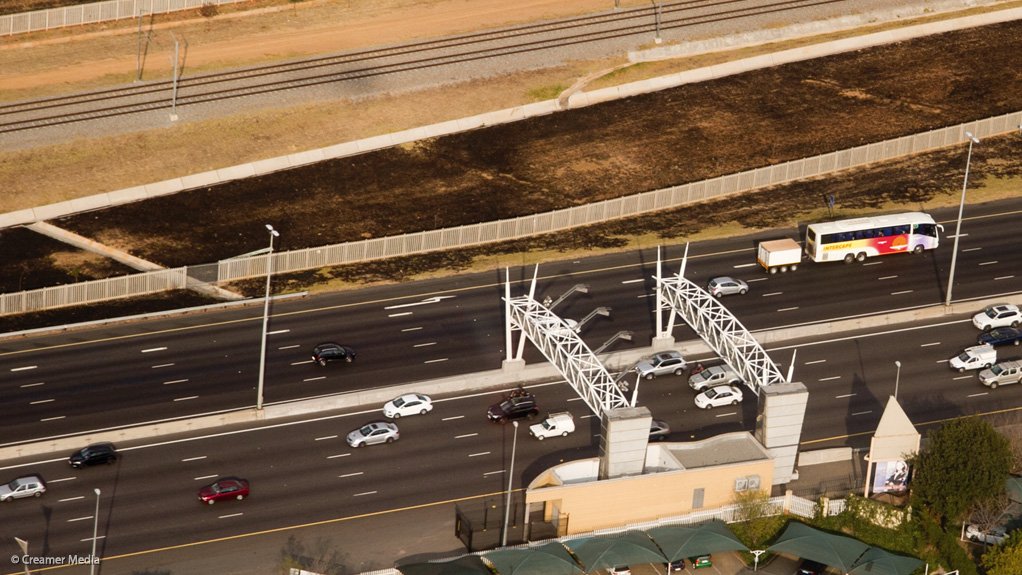Cost recovery from road users will remain the principal financing mechanism of the of the Gauteng Freeway Improvement Project (GFIP), as not all infrastructure services qualified equally for funding from the fiscus, Finance Minister Nhlanhla Nene told Parliament during his National Budget speech on Wednesday.
While providing no clear timelines for the implementation of a reviewed user-pays mechanism, the Minister endorsed Deputy President Cyril Ramaphosa’s “carefully balanced approach” to resolving the GFIP funding dilemma, adding that revised monthly tariff ceilings would “shortly” be proposed.
He added that National Treasury continued to support the South African National Roads Agency Limited (Sanral) in its efforts to fulfil its infrastructure development mandate and wished to reinforce the beleaguered parastatal’s credibility.
Treasury dirctor-general Lungisa Fuzile further noted during the briefing that the user-pays principle had not been undermined by the recent report compiled by members of the advisory panel tasked by Gauteng Premier David Makhura to investigate the socioeconomic impact of e-tolls on the province, which had provided useful suggestions on how compliance could be improved through increased affordability.
He also indicated that government would, in fact, like to see the mechanism rolled out across future national road network extensions.
“Government will also provide a national contribution to meet the associated cost in the adjustments appropriation later this year, [while] measures will be taken to ease compliance and improve enforcement,” Nene revealed.
Ramaphosa was currently leading an intergovernmental consultation team responsible for reviewing the findings and recommendations of the advisory panel that investigated the impact of e-tolls in Gauteng.
Makhura had initially indicated that the process would be concluded by the end of this month; however, meeting this deadline appeared increasingly unlikely.
While noting in his State of the Province address on Monday that a final decision on the new e-toll dispensation would only be made once the work of the intergovernmental team was completed, Makhura assured motorists that they could expect some relief from the current e-toll burden.
“I am confident that the new dispensation should provide major financial relief to motorists, while simplifying the payment system to make it easy for road users to pay,” he told the provincial legislature, in Johannesburg.
Nene, meanwhile, revealed in his maiden National Budget that government transfers to parastatal Sanral – the architect and manager of the contentious e-toll system – were expected to grow by a yearly average of 5.9% over the medium-term expenditure framework (MTEF) period.
Income from fees was expected to increase by 12.2% a year over the same period, in line with expected increased traffic volumes on the toll road network.
This followed the approval of an extraordinary grant to reduce the roads agency’s overall debt in 2012/13 and support its financial viability after tariffs on the GFIP routes were reduced.
Over the MTEF, capital expenditure by Sanral was expected to decline owing to uncertainty over sources of revenue to finance the GFIP, which Nene said affected the agency’s ability to raise funding for the rest of its toll road portfolio.
EMAIL THIS ARTICLE SAVE THIS ARTICLE
To subscribe email subscriptions@creamermedia.co.za or click here
To advertise email advertising@creamermedia.co.za or click here











